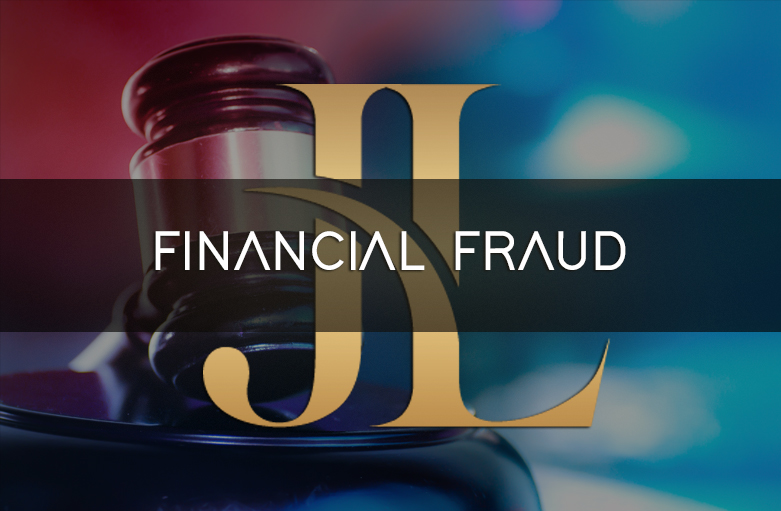Financial Fraud Lawyer: Safeguarding Your Assets and Legal Rights

What is a Financial Fraud Lawyer?
A financial fraud lawyer is a legal professional who specializes in cases involving financial fraud, which includes a wide range of deceptive practices designed to unlawfully obtain money, assets, or information from individuals, businesses, or financial institutions. These attorneys are well-versed in financial regulations, laws governing fraud, and how to pursue legal action against those who commit fraudulent activities.
A financial fraud lawyer typically represents victims of fraud, advising them on how to recover stolen funds, protect their assets, and navigate the legal process to pursue restitution or damages from the perpetrators.
Why Do You Need a Financial Fraud Lawyer?
Dealing with financial fraud can be overwhelming, especially when the complexity of financial transactions and the seriousness of the allegations are involved. Here are some key reasons why hiring a financial fraud lawyer is essential:
1. Expert Knowledge of Fraud Laws
Financial fraud cases often involve intricate legal issues, such as regulatory violations, contractual breaches, and financial transactions that require a deep understanding of financial law. A law-clues.com/ has the expertise to navigate these complexities and ensure that you are fully aware of your legal options.
2. Protection of Your Financial Interests
If you’ve been defrauded, your financial assets may be at risk. A lawyer specializing in financial fraud works to protect your assets and minimize further financial harm. They will take steps to identify the perpetrators, recover stolen funds, and seek legal action to protect your future financial interests.
3. Investigation and Evidence Gathering
Financial fraud is often a sophisticated crime, requiring a thorough investigation and detailed evidence gathering. A skilled fraud lawyer will work with investigators, forensic accountants, and other professionals to uncover critical evidence that proves fraud and helps build a strong case for your claims.
4. Pursuing Legal Action
A financial fraud lawyer will take the necessary steps to pursue legal action, including filing lawsuits, seeking restitution, and representing you in court. They are well-equipped to handle the legal intricacies of fraud cases and will fight to ensure that justice is served.
5. Negotiating Settlements
In some cases, a financial fraud lawyer may be able to negotiate a settlement with the wrongdoers, allowing you to recover a portion of your losses without the need for prolonged litigation. They use their legal expertise to negotiate a favorable outcome on your behalf, when appropriate.
Common Types of Financial Fraud
There are numerous forms of financial fraud that a financial fraud lawyer may handle. Below are some of the most common types:
1. Investment Fraud
Investment fraud occurs when an individual or entity misrepresents an investment opportunity to deceive others into investing money, often promising high returns without disclosing the risks. Common examples include Ponzi schemes, false investment opportunities, and fraudulent securities offerings.
Example: A broker convinces investors to purchase stocks in a company that they know is about to collapse, leading to significant financial losses for investors.
2. Credit Card Fraud
Credit card fraud involves the unauthorized use of someone’s credit card information to make purchases or withdrawals. It can occur through various methods, including hacking, identity theft, or unauthorized card transactions.
Example: A criminal obtains your credit card number and uses it to make unauthorized purchases online.
3. Securities Fraud
Securities fraud is a criminal act that involves the misrepresentation of information related to securities (stocks, bonds, mutual funds, etc.) in order to manipulate the market, deceive investors, or inflate the value of a security. It can also include insider trading or false financial reporting.
Example: A company’s executives provide false information to the public about the company’s financial health to boost stock prices, defrauding investors.
4. Mortgage Fraud
Mortgage fraud occurs when false information is used to secure a mortgage loan or manipulate the loan process. This can involve inflating income, falsifying documents, or engaging in other deceptive practices to gain financial benefits.
Example: A real estate agent submits falsified loan documents on behalf of a homebuyer to secure a larger mortgage than they are qualified for.
5. Insurance Fraud
Insurance fraud involves providing false or misleading information to an insurance company in order to receive benefits or compensation that you are not entitled to. This can include faked claims for damages or falsifying injuries.
Example: A person stages a car accident to collect insurance money for damages that never occurred.
6. Bank Fraud
Bank fraud involves the illegal use of bank accounts, loans, or credit to obtain funds through deceptive means. It can occur when individuals provide false information to obtain loans, access bank accounts, or manipulate financial records.
Example: An individual opens a bank account under false pretenses and uses it to withdraw large sums of money without authorization.
7. Tax Fraud
Tax fraud occurs when an individual or business intentionally falsifies their financial records or fails to report income to evade paying taxes. This can include underreporting income, claiming false deductions, or hiding assets.
Example: A business owner underreports sales figures to avoid paying taxes on the full amount of income earned.
How a Financial Fraud Lawyer Can Help You
A financial fraud lawyer plays a vital role in resolving financial fraud disputes and ensuring that you are compensated for your losses. Below are the key services a financial fraud lawyer provides:
1. Case Evaluation and Legal Guidance
Your lawyer will assess the details of your fraud case, help you understand the legal options available, and advise you on the best course of action. They will explain your rights and help you decide whether to pursue criminal or civil action.
2. Investigation and Evidence Gathering
One of the first steps in any financial fraud case is gathering evidence. A financial fraud lawyer works with forensic experts, investigators, and financial professionals to gather evidence, analyze transactions, and uncover fraud patterns.
3. Litigation and Representation in Court
If a fraud case cannot be resolved through negotiation, your financial fraud lawyer will represent you in court, presenting the case to the judge or jury. They will use evidence to support your claims and work to secure a favorable ruling on your behalf.
4. Negotiating Settlements
Many financial fraud cases are resolved through negotiated settlements. A lawyer will communicate with the responsible party or their legal representatives, working to secure a settlement that compensates you for your losses and prevents further legal action.
5. Restitution and Recovery
Financial fraud lawyers focus on helping you recover as much of your lost funds as possible. They may pursue restitution from the wrongdoer, seek restitution through insurance, or explore other recovery options to ensure that you are compensated for your losses.
6. Prevention and Protection
After a successful case, a financial fraud lawyer may provide guidance on how to prevent future fraud, such as strengthening contracts, implementing fraud protection measures, or improving financial security protocols.
Conclusion: Protect Your Financial Interests with a Financial Fraud Lawyer
Financial fraud can lead to significant emotional and financial distress, especially when the fraud is carried out by trusted parties like financial advisors, business partners, or even family members. A financial fraud lawyer is your best ally in these situations, providing expert legal counsel, guiding you through the investigative process, and ensuring that you seek justice and recover your losses.
If you have been the victim of financial fraud, it’s important to act quickly. The sooner you engage a financial fraud attorney, the better the chances of recovering your assets and holding the wrongdoers accountable for their actions.



